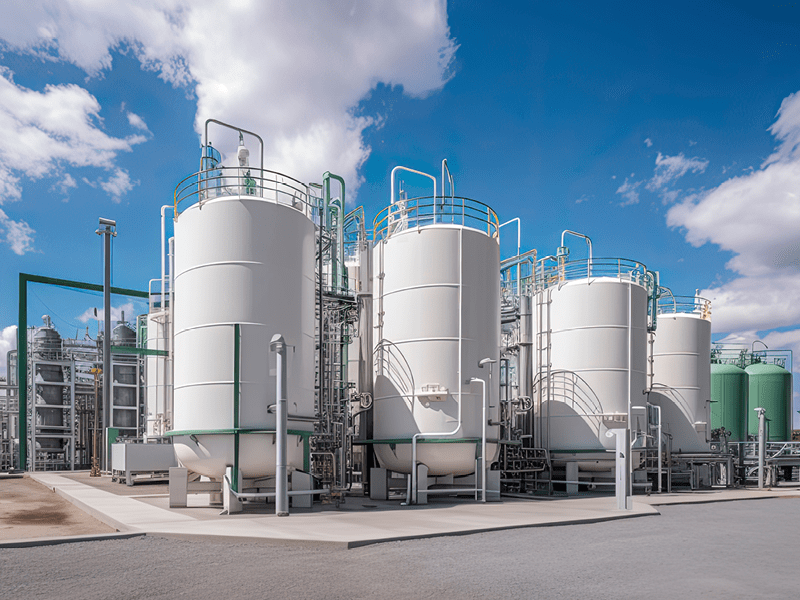
Close Brothers has long been a key funder in the renewables space, supporting solar, wind, and battery storage projects.
As part of our wider commitment to energy infrastructure, Close Brothers is now supporting further investment in multiple areas – including fleet electrification and hydrogen – which is becoming an increasingly viable energy source for UK businesses.
We took the opportunity to speak with Daniele Manzi, Sales Lead on our ESG team and a hydrogen expert, asking him for his views on a range of related issues, from the fuel’s role in the UK’s energy transition to market trends.
Why is hydrogen crucial for the energy transition, and what role does it play in decarbonisation?
The energy transition is about shifting away from fossil fuels towards cleaner, more sustainable energy sources to meet global net-zero targets and mitigate climate change. Hydrogen plays a critical role in this transition because it enables decarbonisation in sectors where direct electrification is impractical or inefficient.
Key industries, including steel production, chemicals, and transport—notably trucking, shipping, and aviation—are highly dependent on fossil fuels thanks to their need for high energy density and operational flexibility. Hydrogen, when produced via electrolysis using renewable energy, can serve as a viable substitute, significantly reducing emissions.
Beyond industry, hydrogen enhances energy security and grid stability. It provides a means of storing excess renewable energy, helping to balance fluctuations in wind and solar generation.
The International Energy Agency (IEA) notes, ‘hydrogen can also support the integration of variable renewables in the electricity system, being one of the few options for storing energy over days, weeks or months’.
This ability to act as both a decarbonisation tool and an energy storage solution makes hydrogen a cornerstone of the global clean energy transition.
What is the outlook for the hydrogen market in the UK and globally, and what trends are driving its growth?
McKinsey & Company’s Global Energy Perspective 2023 estimates clean hydrogen demand could reach between 125 and 585 million tonnes per year by 2050, with strong adoption in steel manufacturing, synthetic fuels, and heavy transport. However, mass adoption will require major investment to scale production and infrastructure.
In 2023, global investment in hydrogen projects reached $570 billion, a 31% increase from the previous year (J.P. Morgan, 2024). Despite this momentum, the IEA warns that investment must increase eightfold by 2030 to meet net-zero targets (Hydrogen Council, 2024). This highlights the potential for public-private collaboration to build infrastructure, reduce costs, and accelerate deployment.
The UK is positioning itself as a leader in the hydrogen economy, with significant government-backed funding and policy initiatives. A key pillar of this is the Hydrogen Allocation Rounds (HARs), designed to support low-carbon hydrogen production:
- HAR1 (2023): £2 billion in revenue support was allocated to 11 projects, totalling 125 MW of capacity
- HAR2 (2024): Aims to fund up to 875 MW, contributing to the UK’s 1 GW target by 2025 (Baringa, 2023)
Beyond HARs, the government has committed £21.7 billion over 25 years to develop carbon capture and storage (CCS), a key enabler for low-carbon hydrogen production (Reuters, 2023). These investments signal the UK’s strong ambition to establish a competitive hydrogen economy.
What is Close Brothers’ approach to funding hydrogen, and how has it evolved?
Close Brothers has a longstanding commitment to financing the UK’s energy transition. Our dedicated Energy team has been instrumental in funding utility-scale renewable projects, including solar farms and battery storage systems, such as a 70 MW solar project in Essex and a 99.98 MW battery storage facility in Kent.
Building on this foundation, our ESG team—including hydrogen specialists—has expanded our focus to hydrogen finance, supporting not only production but also critical infrastructure like electrolysers, compressors, and MEGCs (multiple element hydrogen gas containers).
We have aligned our strategy with the UK’s 10-point plan for a green industrial revolution, where hydrogen plays a key role, and we also actively support fleet electrification and commercial rooftop solar, among other projects.
Through our partnerships with OEMs (original equipment manufacturer), EPCs (engineering, procurement and construction), installers, expert legal panels, and technical consultants, we provide receivables-backed finance, corporate finance, and asset finance to fund electrolysers, compressors, MEGCs, and associated infrastructure.
As hydrogen adoption scales, our expertise, partnerships, and flexible funding solutions ensure that Close Brothers remains a key financial enabler in the UK’s low-carbon transition.
What types of hydrogen-related assets has Close Brothers funded, what trends are emerging, and how does Close Brothers assess different hydrogen technologies?
Close Brothers actively finances assets across the entire hydrogen value chain, from production to distribution and end-use applications. This includes:
- Electrolysers – enabling scalable green hydrogen production
- Compressors – supporting efficient hydrogen transport and storage
- MEGCs – facilitating hydrogen distribution
- Hydrogen power units (HPUs) – providing off-grid, zero-emission energy solutions
We have also supported various projects, including for GeoPura’s debt funding round, which enables the manufacturing and deployment of over 3,600 HPUs by 2033, replacing diesel generators with zero-emission alternatives. These deals form part of our broader commitment to financing critical hydrogen infrastructure that supports the transition to a low-carbon economy.
Hydrogen is a nascent industry, and financing it requires careful risk management. Close Brothers ensures prudent investment by:
- Partnering with credible counterparties – working with established OEMs, EPCs, and service providers to mitigate supply chain risks
- Managing technology risk – evaluating the maturity and scalability of different hydrogen production and infrastructure solutions
- Navigating market shifts – recognising that hydrogen prices, energy costs, and asset values will fluctuate, requiring flexible financing structures
- Staying ahead of policy changes – aligning with government initiatives like the £960 million Green
Industries Growth Accelerator, which supports investment in clean energy projects, including hydrogen infrastructure, to drive UK industrial decarbonisation (UK Government, 2024)
Through this value-chain approach, Close Brothers plays a key role in enabling the scaling of hydrogen infrastructure, helping ensure the sector’s long-term commercial viability.
What are the key features Close Brothers considers in a typical hydrogen financing deal?
Close Brothers takes a flexible and commercial approach to financing hydrogen, supporting projects across the entire value chain, from production to end-use applications.
We provide:
- Asset finance – funding specific hydrogen-related equipment, like electrolysers, compressors, and MEGCs
- Project finance – financing individual hydrogen projects based on contracted revenue streams and counterparties
- Value-chain financing – supporting integrated hydrogen projects that combine production, distribution, and end-use applications
When assessing a deal, we consider:
- Commercial viability – evaluating revenue streams, off-take agreements, and project economics
- Risk and security – taking a pragmatic approach to deal structuring, with flexibility on security requirements and a balanced view of risk and reward
- Government support mechanisms – where possible, we secure our position with government incentives and guarantees, ensuring long-term project bankability
This practical, opportunity-driven approach ensures that Close Brothers can support businesses at various stages of development, from early-stage hydrogen innovators to large-scale infrastructure projects.
What innovations in hydrogen financing are emerging, and how is Close Brothers adapting?
The UK hydrogen sector is evolving rapidly, with technological advancements, expanding heavy transport applications, and evolving government support mechanisms driving investment. To ensure we support the best technologies and businesses driving growth and innovation in the UK, Close Brothers is partnering with technical experts throughout the value chain to assess asset values, offtake contracts (a legally binding agreement between a producer and a buyer to purchase or sell portions of the producer’s upcoming goods), and other forms of security.
1. Technological Innovation in Electrolysis
Hydrogen production is advancing, with two primary electrolysis technologies emerging:
- Proton exchange membrane (PEM) electrolysers offer rapid response times and high-purity hydrogen output, making them well-suited for on-site hydrogen generation and grid balancing applications
- Alkaline electrolysers feature lower capital costs and stable, continuous hydrogen production, making them a strong option for large-scale hydrogen hubs and industrial clusters
These evolving technologies require a careful assessment of commercial viability, and we work closely with technical specialists to ensure electrolyser investments align with scalable and efficient solutions.
2. Heavy transport adoption and infrastructure growth
Hydrogen is increasingly seen as a viable solution for decarbonising heavy transport in the UK, particularly in sectors where electrification is challenging. The government is backing the rollout of hydrogen fuel cell HGVs and buses, with initiatives like the Tees Valley Hydrogen Transport Hub supporting pilot projects. At the same time, investments in hydrogen refuelling stations are growing to support the transition of logistics fleets and public transport.
To support the sector’s growth, we work with specialist partners to evaluate refuelling infrastructure, vehicle technology, and the long-term demand for hydrogen-powered transport.
3. Evolving government support and market frameworks
The UK government is shaping the hydrogen economy through incentives and regulation, introducing targeted financial mechanisms to support market development. The £960 million Green Industries Growth Accelerator is funding the development of low-carbon industrial technologies, including hydrogen infrastructure.
Additionally, the UK Hydrogen Business Model (HBM) provides long-term revenue support for hydrogen producers through contracts for difference (CfDs), reducing market exposure.
In the transport sector, the Hydrogen Transport Hub Demonstration Programme offers grants to accelerate adoption across logistics, buses, and maritime applications.
Close Brothers works with market experts and policy specialists to ensure that financing decisions align with the most stable and scalable opportunities in the sector.
The availability of lending, products and services are subject to eligibility, status and our lending criteria. The right to decline any application is reserved, terms and conditions apply.
About the author
Daniele is the ESG Sales Lead for Close Brothers Asset Finance. Since 2023 he has worked with SMEs to offer funding solutions for the adoption of technologies that support the UK’s transition to Net Zero, including fleet electrification, commercial rooftop solar, and hydrogen infrastructure.






